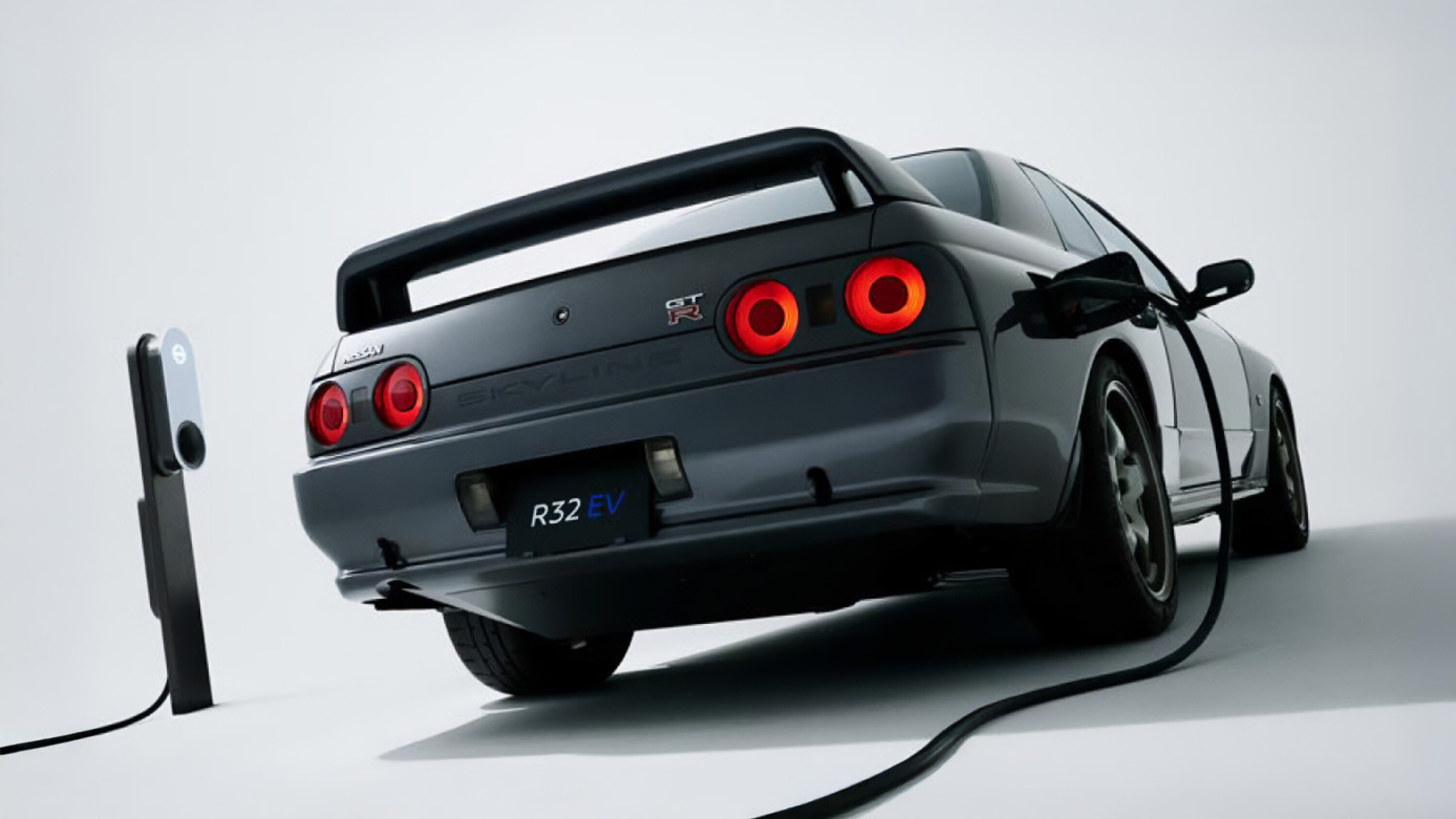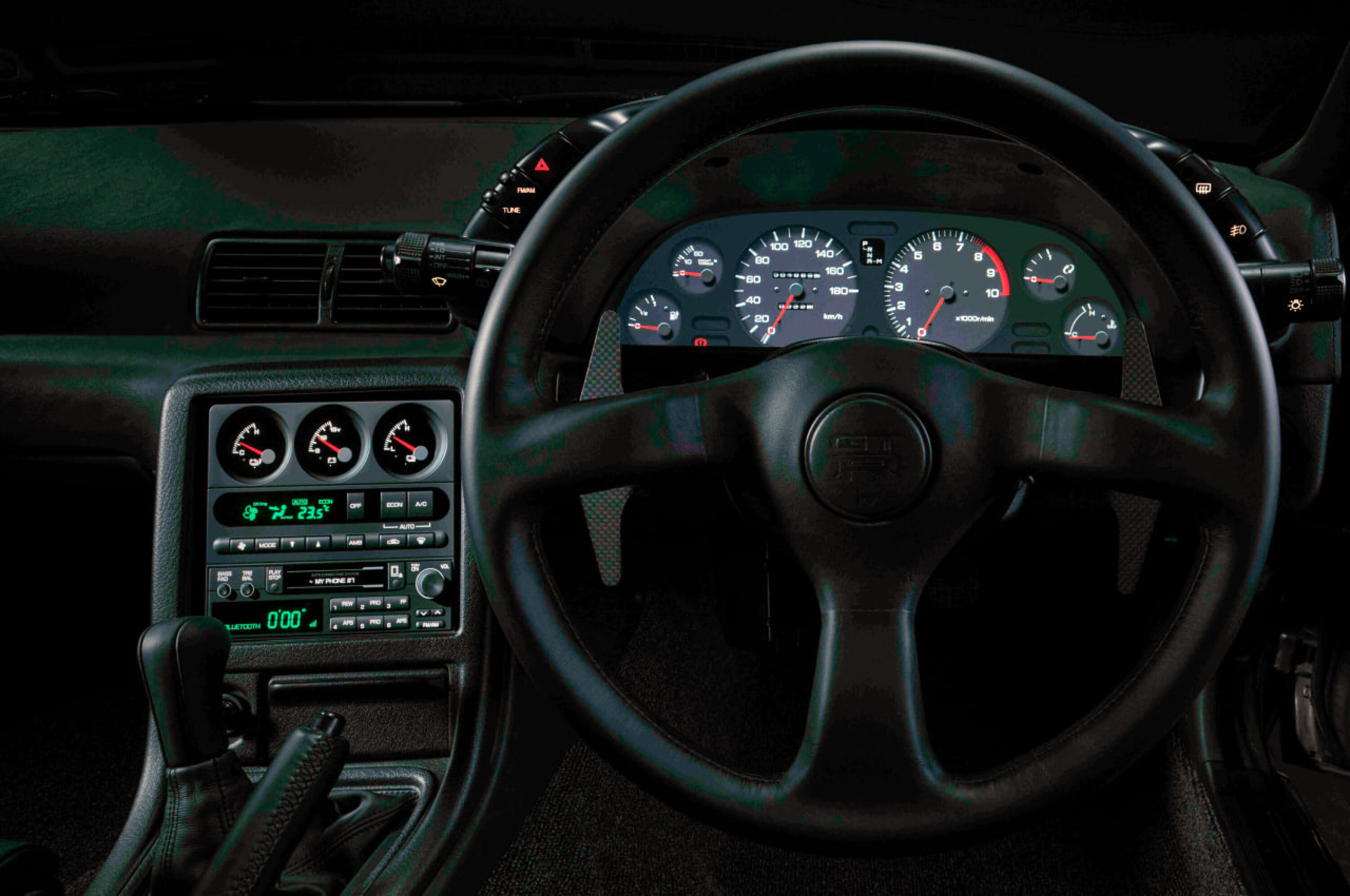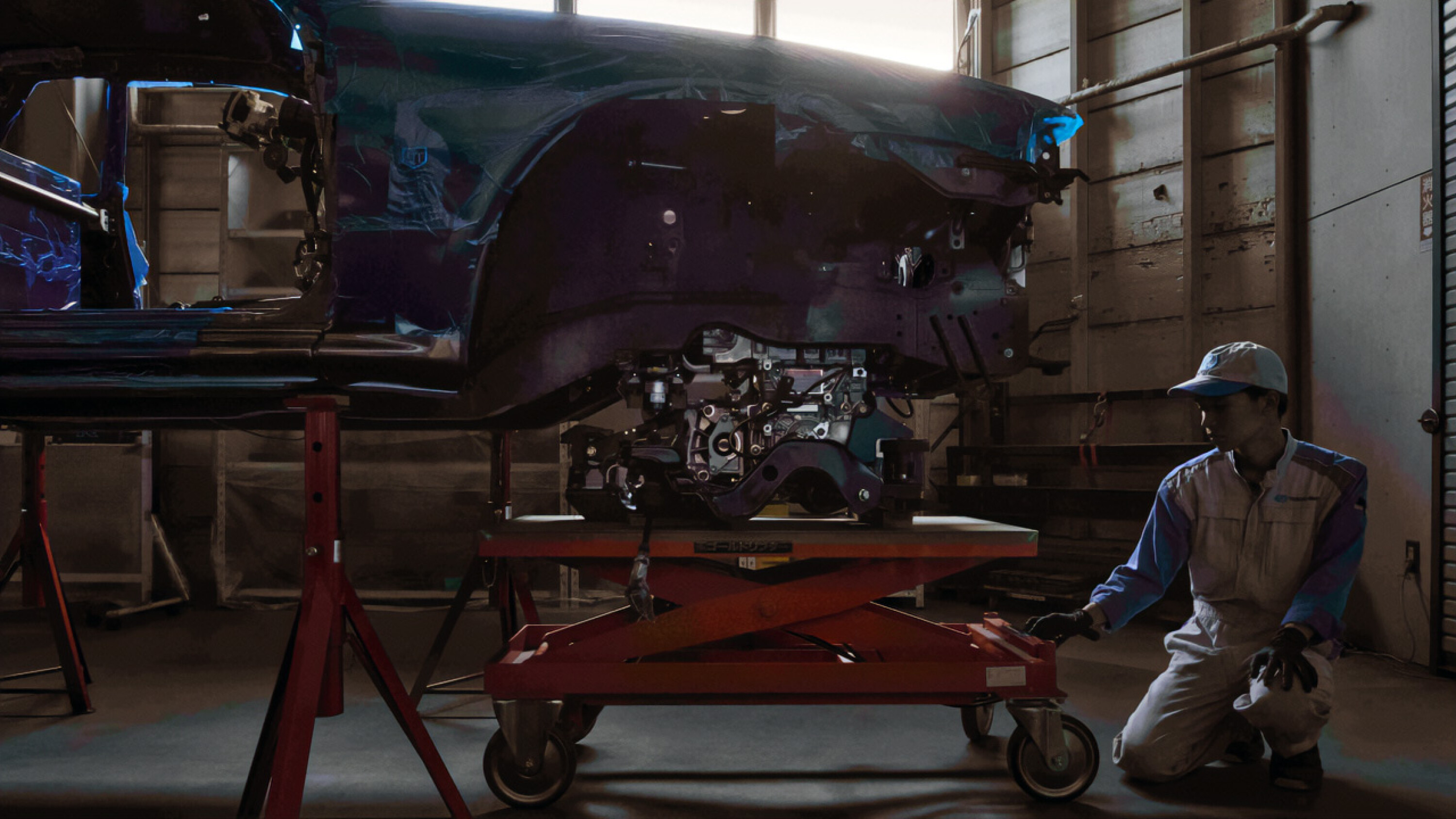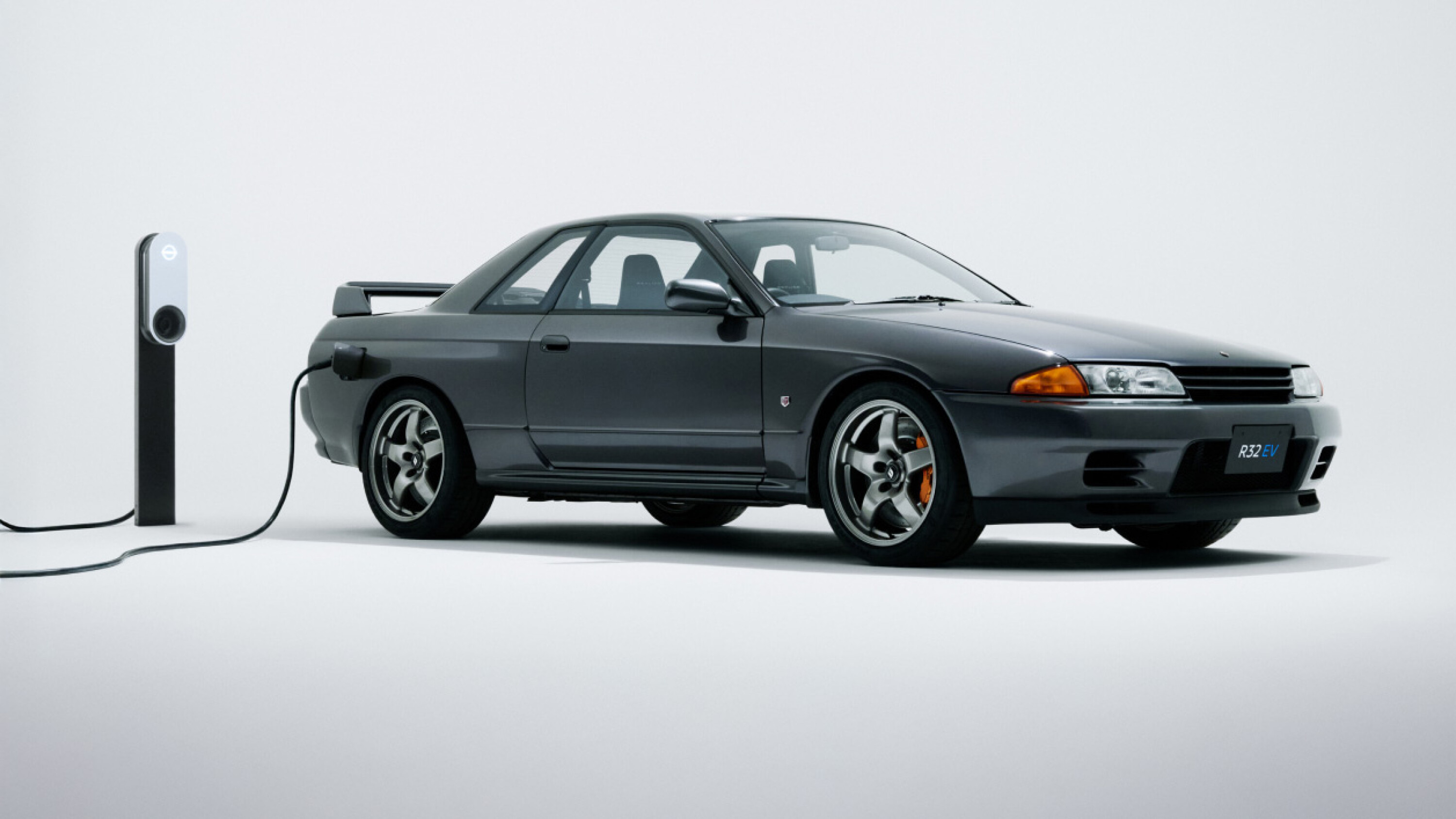Electric motors, fake engine noises and programmed paddle shifters. Hero or heretic?
Snapshot
- Dual electric motors produce 320kW and 780Nm, powered by a 62kWh Leaf NISMO battery
- Gains 357kg over the original, now weighing 1787kg with R35 brakes and NISMO suspension
- Nissan confirms no plans to commercialise or offer EV conversion kits for the R32
Nissan has unveiled its electric R32 Skyline GT-R at the 2025 Tokyo Auto Salon, replacing the hero coupe’s iconic RB26DETT engine with a dual-motor electric drivetrain.
If you can still read through that sudden outbreak of tears, here are the details. Maybe sit down first.
The R32 EV is a fully restored and modified version of the original Skyline GT-R, with front and rear electric motors delivering 160kW and 340Nm individually – combining for a total of 320kW and 780Nm.

The original R32 GT-R launched in 1989 with a claimed 206kW and 353Nm from its 2.6-litre twin-turbo inline-six – although actual outputs were believed to be higher, as Japanese brands were engaged in a ‘gentleman’s agreement’ at the time to limit outputs.
Nissan says its engineers have worked to tune the R32 EV’s figures to match the original R32 GT-R’s torque-to-weight ratio.
Powering the new motors is a 62kWh battery pack borrowed from the Nissan Leaf NISMO race car, with its charging port hidden behind the traditional fuel filler flap.

The original five-speed manual gearbox and ATTESA E-TS all-wheel drive system has been ditched, of course, with the twin motors now doing that system’s work.
Weighing in at 1787kg, the R32 EV gains 357kg over the standard model’s 1430kg kerb weight, tipping the scales beyond even the R35 GT-R’s initial 1750kg figure.
Braking has been upgraded with larger units sourced from the R35 GT-R, now tucked behind 18-inch wheels designed to mirror the original alloy design.

A NISMO sports suspension package with Öhlins dampers has been fitted to improve handling characteristics.
Inside, the rear seats have been removed to accommodate the battery pack, while the centre console now features a tall touchscreen in place of the original analog controls.
To ‘recreate’ the driving experience of the original RB26 engine, the R32 EV includes a sound system that simulates engine noise and a paddle-activated simulated gear shift program.
Is the R32 EV a hint of things to come?
Despite the extensive engineering of this project, Nissan says it has no further plans for the system used in the R32 EV.
The project, initiated in March 2023, was developed purely for internal research and development.
Looking ahead, Nissan’s future for the GT-R badge remains uncertain. The Hyper Force concept, revealed at the 2023 Tokyo Motor Show, hinted at a 1000kW electric GT-R powered by solid-state batteries. Reports from Japan suggest the next-generation R36 GT-R could adopt either a fully electric or hybrid drivetrain.
Nissan has committed to launching 27 electrified models – including 19 electric vehicles and eight hybrids – across its Nissan and Infiniti brands by the 2030 fiscal year.
All of this, of course, will depend on the outcome of Nissan’s merger talks with Honda.
| Specifications | R32 EV | R32 GT-R |
|---|---|---|
| Length (mm) | 4,545 | 4,545 |
| Width (mm) | 1,755 | 1,755 |
| Height (mm) | 1,340 | 1,340 |
| Weight (kg) | 1,797 | 1,430 |
| Motor/Engine | Twin electric motor | RB26DETT |
| Transmission | N/A | 5-speed manual |
| Max power | 160 kW motor x 2 | 206 kW (280 PS; 276 hp) |
| Max torque | 340 Nm motor x 2 | 353 Nm (260 lbu22c5ft) |
| AWD system | Twin motor AWD | ATTESA E-TS |
| Brakes | Upgraded R35 ventilated discs and calipers | Ventilated discs |
| Wheels | 235/45R 18 | 225/50R16 |
| Seats | 2 | 4 |






